Table of Contents
B2B Fulfillment vs. B2C Fulfillment: What Are the Differences
Time: Jun 17,2025 Author: SFC Source: www.sendfromchina.com
E-commerce success hinges on optimized order fulfillment. While B2B transactions typically involve bulk orders, complex logistics, and longer sales cycles, B2C focuses on speed, individual packaging, and direct customer engagement. Recognizing these differences ensures smoother operations and higher satisfaction.B2B and B2C fulfillment operate on different principles, each with specialized requirements. By analyzing their contrasting approaches, this guide empowers businesses to tailor strategies, minimize bottlenecks, and drive growth in both markets.
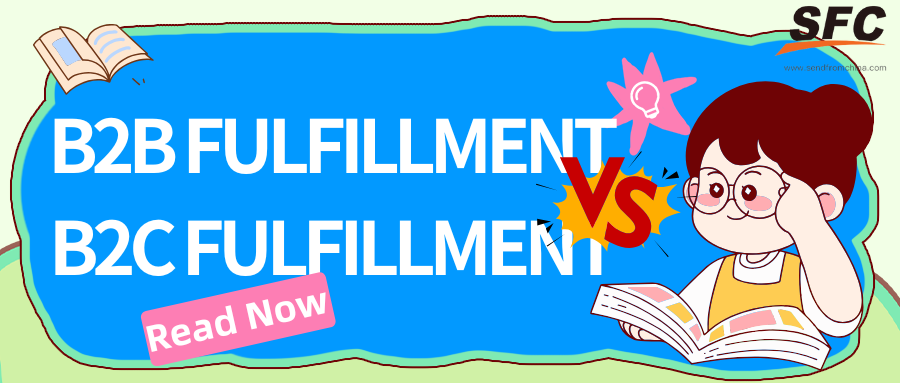
1. What Is B2B Fulfillment
Business-to-Business (B2B) fulfillment refers to the comprehensive process of receiving, processing, and delivering orders from one business to another. Unlike Business-to-Consumer (B2C) fulfillment, which deals with individual consumer orders, B2B fulfillment handles larger, bulk orders that often involve complex logistics and longer sales cycles.Key Characteristics of B2B Fulfillment
- Bulk Orders: B2B transactions typically involve large quantities of products, requiring efficient handling and storage solutions.- Customized Processes: Each business client may have specific requirements, necessitating tailored packaging, labeling, and delivery schedules.
- Long-Term Relationships: B2B fulfillment often involves ongoing partnerships, with contracts outlining terms, pricing, and service level agreements (SLAs).
- Complex Logistics: Managing B2B orders requires coordination across multiple departments and systems, including inventory management, order processing, and shipping logistics.
Importance of B2B Fulfillment
Effective B2B fulfillment is critical for maintaining supply chain efficiency, meeting client expectations, and fostering long-term business relationships. By streamlining the fulfillment process, businesses can reduce operational costs, improve customer satisfaction, and gain a competitive edge in the market.2. What Is B2C Fulfillment
Business-to-Consumer (B2C) fulfillment refers to the end-to-end process of delivering products directly from a business to individual consumers. This model is prevalent in e-commerce and retail sectors, where businesses handle a high volume of smaller orders that require swift and accurate processing to meet consumer expectations.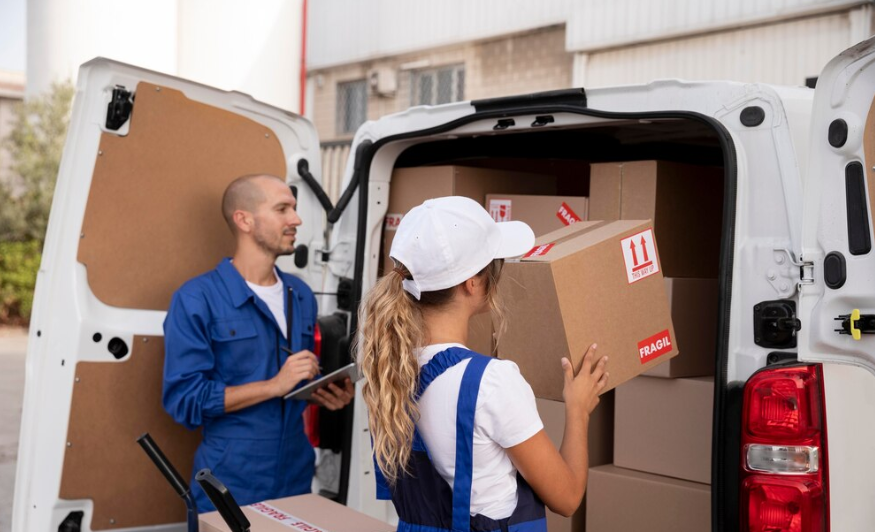
Key Characteristics of B2C Fulfillment
High Order Volume and Frequency: B2C operations typically manage a large number of orders daily, each consisting of a few items. This high frequency necessitates efficient systems to process and ship orders promptly.Direct-to-Consumer Shipping: Products are shipped directly to the consumer's doorstep, bypassing intermediaries. This direct approach demands reliable last-mile delivery solutions to ensure customer satisfaction.
Emphasis on Speed and Convenience: Modern consumers expect rapid delivery times, often within a few days or even hours. Meeting these expectations requires streamlined logistics and real-time inventory management.
Personalized Customer Experience: B2C fulfillment often includes customized packaging and personalized communication to enhance the unboxing experience and build brand loyalty.
Importance of B2C Fulfillment
Effective B2C fulfillment is critical for maintaining customer satisfaction, fostering brand loyalty, and staying competitive in the market. By ensuring swift and accurate order processing, businesses can meet consumer demands and build a strong reputation.3. Differences Between B2B Fulfillment and B2C Fulfillment
Understanding the distinctions between Business-to-Business (B2B) and Business-to-Consumer (B2C) fulfillment is crucial for businesses aiming to optimize their supply chain operations. While both models involve delivering products to end-users, the processes, customer expectations, and logistical requirements differ significantly.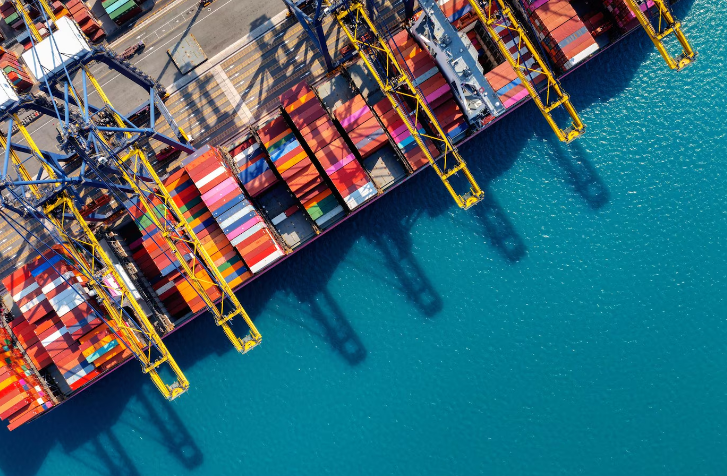
Order Volume and Frequency
- B2B Fulfillment: Involves large, bulk orders placed less frequently. Businesses often purchase in significant quantities to maintain inventory levels, leading to fewer but larger transactions.- B2C Fulfillment: Characterized by a high volume of smaller orders placed more frequently. Individual consumers make purchases regularly, necessitating systems that can handle numerous transactions efficiently.
Customer Relationships and Expectations
- B2B Fulfillment: Focuses on building long-term relationships with clients. Businesses expect reliability, consistency, and tailored solutions to meet their specific needs.- B2C Fulfillment: Emphasizes customer satisfaction and experience. Consumers seek quick delivery, easy returns, and responsive customer service.
Order Processing and Documentation
- B2B Fulfillment: Requires detailed documentation, including purchase orders, invoices, and compliance with various regulations. The process often involves multiple departments and approval stages.- B2C Fulfillment: Involves streamlined processes with minimal documentation. Orders are typically processed quickly through automated systems to meet consumer expectations for speed.
Shipping and Delivery
- B2B Fulfillment: Utilizes freight shipping methods suitable for large shipments, with scheduled deliveries coordinated to align with business operations.- B2C Fulfillment: Relies on parcel carriers for direct-to-consumer deliveries, often offering expedited shipping options to meet consumer demand for fast delivery.
Returns Management
- B2B Fulfillment: Returns are less frequent but can be complex, involving restocking fees and detailed inspections. The process requires coordination between multiple departments.- B2C Fulfillment: Returns are more common, requiring efficient reverse logistics processes to maintain customer satisfaction and loyalty.
Technology Integration
- B2B Fulfillment: Often involves integration with Electronic Data Interchange (EDI) systems and enterprise resource planning (ERP) software to manage complex transactions and supply chain operations.- B2C Fulfillment: Utilizes e-commerce platforms and customer relationship management (CRM) systems to handle high volumes of transactions and provide personalized customer experiences.
Pricing and Payment Terms
- B2B Fulfillment: Pricing is typically negotiated based on volume, with payment terms that may include net 30, 60, or 90-day agreements.- B2C Fulfillment: Pricing is fixed, with immediate payment required at the point of sale through various online payment methods.
Packaging and Presentation
- B2B Fulfillment: Packaging focuses on functionality and protection during transit, often using pallets and bulk containers.- B2C Fulfillment: Emphasizes branding and customer experience, with attractive packaging designed to enhance the unboxing experience.
The Comparison Table
Aspect |
B2B Fulfillment | B2C Fulfillment |
|---|---|---|
Order Volume & Frequency |
Large, bulk orders placed less frequently. | Smaller, individual orders placed more frequently. |
Customer Relationship |
Long-term contracts and partnerships. | Transactional, focused on individual purchases. |
| Order Processing | Complex processes with detailed documentation and compliance requirements. |
Streamlined processes with minimal documentation. |
Shipping & Delivery |
Utilizes freight shipping methods with scheduled deliveries. | Relies on parcel carriers with options for expedited shipping. |
Returns Management |
Less frequent but more complex returns involving restocking fees and inspections. | More common, requiring efficient reverse logistics processes. |
| Technology Integration | Integration with Electronic Data Interchange (EDI) and Enterprise Resource Planning (ERP) systems. | Integration with e-commerce platforms and Customer Relationship Management (CRM) systems. |
Pricing & Payment Terms |
Negotiated pricing with extended payment terms (e.g., net 30, 60, or 90 days). | Fixed pricing with immediate payment at the point of sale. |
Packaging & Presentation |
Functional packaging focused on protection during transit. | Attractive packaging designed to enhance the unboxing experience. |
4. How B2B Fulfillment and B2C Fulfillment Work
Understanding the operational workflows of B2B (Business-to-Business) and B2C (Business-to-Consumer) fulfillment is essential for businesses aiming to optimize their supply chain strategies. While both models share common elements such as inventory management, order processing, and shipping, the execution of these components varies significantly due to differing customer expectations, order volumes, and logistical complexities.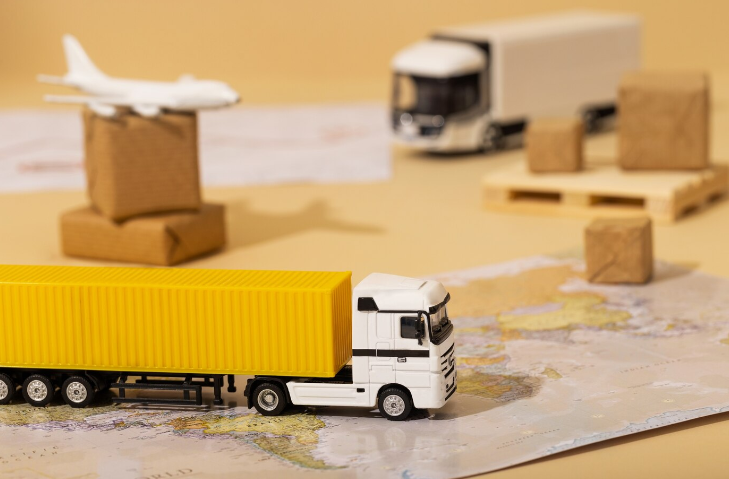
B2B Fulfillment: Step-by-Step Process
B2B fulfillment involves handling large, bulk orders between businesses, often requiring customized solutions and adherence to strict compliance standards.Receiving and Warehousing
- Products arrive at the warehouse from manufacturers or suppliers.- Upon arrival, goods are inspected for quality and quantity accuracy.
- Inventory is logged into the Warehouse Management System (WMS) and stored strategically for efficient retrieval.
Inventory Management
- Real-time tracking of inventory levels is crucial to prevent stockouts or overstocking.- Advanced WMS tools facilitate demand forecasting and inventory optimization.
Order Processing
- Orders are received through Electronic Data Interchange (EDI) systems or online portals.- Each order is reviewed for accuracy, compliance requirements, and delivery specifications.
- Customized documentation, such as invoices and packing lists, is prepared.
Picking and Packing
- Items are picked in bulk, often involving palletization or case picking.- Packing may include custom labeling, kitting, or bundling as per client requirements.
Shipping and Distribution
- Orders are shipped using freight carriers, with options like Less Than Truckload (LTL) or Full Truckload (FTL) shipping.- Delivery schedules are coordinated to align with the recipient's operational needs.
Returns and Reverse Logistics
- Returns are managed through a structured process, including inspection, restocking, and documentation.- Efficient reverse logistics are essential to maintain strong business relationships.
B2C Fulfillment: Step-by-Step Process
B2C fulfillment focuses on delivering individual orders directly to consumers, emphasizing speed, accuracy, and customer satisfaction.Order Placement and Processing
- Customers place orders through e-commerce platforms or online stores.- The system verifies payment, checks inventory availability, and confirms order details.
Inventory Management
- Inventory levels are updated in real-time to reflect sales and restocking.- Efficient inventory management ensures product availability and minimizes backorders.
Picking and Packing
- Items are picked individually, often using piece picking or batch picking methods.- Products are packed securely, with attention to branding and customer experience.
Shipping and Delivery
- Orders are shipped via parcel carriers, offering various delivery options to meet customer expectations.- Tracking information is provided to customers for transparency.
Returns Management
- A streamlined returns process allows customers to return products easily.- Returned items are inspected, restocked, or disposed of according to company policies.
5. How to Choose the Right B2B and B2C Fulfillment Service
Selecting an appropriate fulfillment partner is pivotal for streamlining operations, enhancing customer satisfaction, and supporting business growth. The criteria for choosing a fulfillment service differ between B2B and B2C models due to their unique operational demands and customer expectations. Below is a comprehensive guide to help businesses make informed decisions when selecting B2B and B2C fulfillment services.
Choosing a B2B Fulfillment Service
B2B fulfillment involves complex logistics, larger order volumes, and stringent compliance requirements. When evaluating potential B2B fulfillment partners, consider the following factors:EDI Compliance and Technological Integration
Ensure the fulfillment provider supports Electronic Data Interchange (EDI) systems and integrates seamlessly with your existing Enterprise Resource Planning (ERP) software. This integration facilitates efficient order processing and real-time data exchange.Scalability and Flexibility
Assess the provider's ability to scale operations in response to your business growth and seasonal fluctuations. A flexible partner can adapt to changing order volumes and diverse product lines.Compliance with Industry Standards
Verify that the fulfillment service adheres to industry-specific regulations, including handling of hazardous materials, international shipping laws, and retailer routing guidelines.Order Accuracy and Reliability
High order accuracy is critical in B2B transactions to maintain trust and avoid costly errors. Inquire about the provider's accuracy rates and quality control measures.Transparent Communication and Customer Support
Effective communication channels and responsive customer service are essential for resolving issues promptly and maintaining smooth operations.Choosing a B2C Fulfillment Service
B2C fulfillment focuses on delivering individual orders to consumers efficiently and accurately. Key considerations when selecting a B2C fulfillment partner include:Integration with E-commerce Platforms
The fulfillment service should seamlessly integrate with your online store and other sales channels to automate order processing and inventory management.Speed and Reliability of Shipping
Consumers expect fast and reliable delivery. Evaluate the provider's shipping options, carrier partnerships, and delivery times to ensure they meet customer expectations.Order Accuracy and Return Handling
Accurate order fulfillment and efficient return processes are vital for customer satisfaction. Inquire about the provider's error rates and return management policies.Customization and Branding Options
The ability to customize packaging and include branded materials can enhance the customer experience and reinforce brand identity.Customer Support and Communication
Responsive customer service is crucial for addressing consumer inquiries and resolving issues promptly.6. Find Best B2C Fulfillment Service at SendFromChina
SendFromChina (SFC) is a leading fulfillment center based in China, specializing in B2C e-commerce fulfillment. With a commitment to achieving 7-day global delivery, SFC offers comprehensive services including warehousing, inventory management, picking and packing, and global shipping to over 220 countries and regions.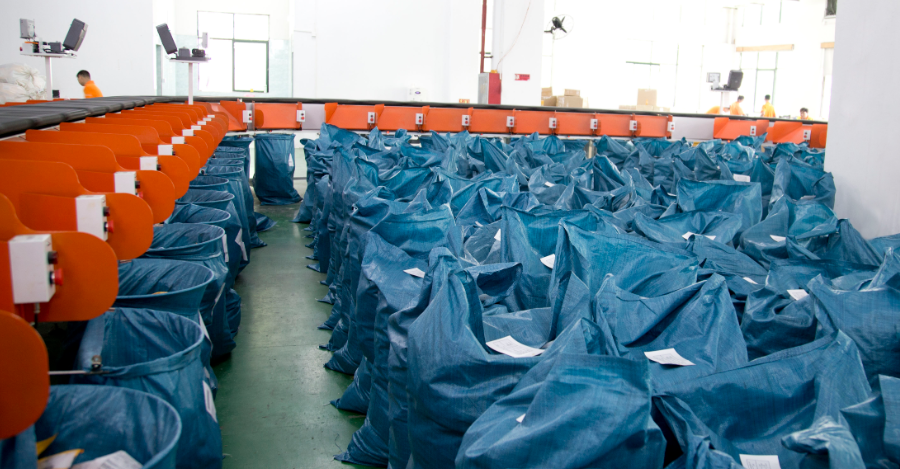
SFC's advanced logistics solutions and real-time tracking capabilities ensure efficient and reliable delivery, enhancing the shopping experience for consumers worldwide. With over 100,000 registered members and a daily parcel handling capacity exceeding 500,000, SFC is a trusted partner for businesses seeking to optimize their B2C fulfillment operations.
7. Conclusion
Understanding the differences between B2B and B2C fulfillment is essential for businesses to tailor their logistics strategies effectively. While B2B fulfillment focuses on bulk orders, long-term relationships, and compliance, B2C fulfillment emphasizes speed, customer satisfaction, and efficient returns management. By selecting the right fulfillment partner, such as SendFromChina for B2C operations, businesses can enhance their supply chain efficiency and meet the evolving demands of their customers.8. FAQs
Q1: What is the main difference between B2B and B2C fulfillment?
A1: B2B fulfillment involves bulk orders between businesses with complex logistics, while B2C fulfillment deals with individual consumer orders focusing on speed and customer satisfaction.Q2: Why is inventory management important in B2B fulfillment?
A2: Accurate inventory management ensures product availability for large orders and helps maintain compliance with client agreements.Q3: How does technology integration differ between B2B and B2C fulfillment?
A3: B2B fulfillment often requires integration with EDI systems for order processing, while B2C fulfillment integrates with e-commerce platforms for real-time order tracking.Q4: What role does customer service play in B2C fulfillment?
A4: Customer service is crucial in B2C fulfillment to handle inquiries, manage returns, and ensure a positive shopping experience.Q5: Can a business use the same fulfillment provider for both B2B and B2C operations?
A5: Yes, some fulfillment providers offer services tailored to both B2B and B2C needs, but it's important to ensure they can handle the specific requirements of each model. Post Views:1204
Post Views:1204
Copyright statement: The copyright of this article belongs to the original author. Please indicate the source for reprinting.
Previous Post
Subscription Box Fulfillment Guide: A Comprehensive Playbook for DTC Brands
Next Post
How to Provide Free Shipping Without Losing Profit for Your E-Store
TAGS
Hot Research
Get a Custom China Fulfillment Solution with FREE Storage for 30 Days
 Want to know about our services, fees or receive a custom quote?
Want to know about our services, fees or receive a custom quote?
 Please fill out the form on the right and we will get back to you within a business day.
Please fill out the form on the right and we will get back to you within a business day.
 The more information you provide, the better our initial response
will be.
The more information you provide, the better our initial response
will be.





 TAGS:
TAGS: